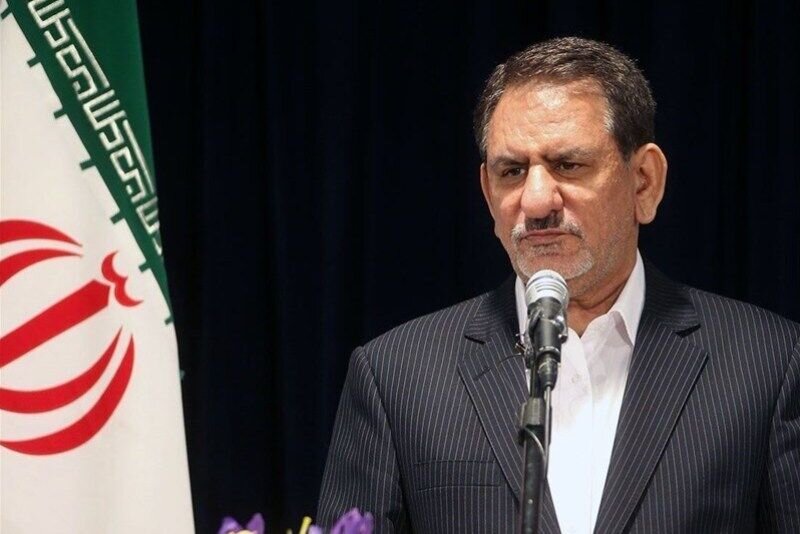There is limit to patience, Jahangiri tells Europeans

TEHRAN - Iran has remained in the 2015 nuclear deal even one year after the U.S. withdrawal, however, there is a “limit to patience”, Iranian First Vice President Es’haq Jahangiri said on Monday.
The remarks by the vice president came one day after Iran announced that it has started enriching uranium to a higher purity than the 3.67%, as the Europeans missed a 60-day deadline by Tehran to devise a concrete mechanism to protect the country from the U.S. sanctions.
On May 8, exactly one year after the United States left the nuclear deal and reimposed sanction on Iran, Tehran announced that its “strategic patience” is over and announced a partial withdrawal from some aspects of the nuclear pact. The announcement, which was declared by the Supreme National Security Council, stated that the country would no longer adhere to some of the limits on its nuclear activities as long as sanctions are in place. It also threatened to step up uranium enrichment if an agreement is not made within 60 days to protect it from the sanctions’ effects.
“In recent weeks, they asked the president [Hassan Rouhani] to wait more before reducing commitments. One year has passed. We have waited and fulfilled our commitments and discussed it with Europeans, Chinese and Russians. There is limit to patience,” Jahangiri said during a meeting at Alzahra University.
He said that the remaining parties to the deal have not done the least to save the nuclear deal after the U.S. withdrawal.
“So, it was natural that Iran respond,” he said.
On Sunday, Iran gave the Europeans another 60 day to honor their commitment under the deal otherwise Iran will take the next steps.
Jahangiri advised the Europeans to use the 60-day time to protect Iran from sanctions so that Iran will not be forced to take retaliatory measures.
Under the JCPOA, Iran had agreed to put limits on parts of its nuclear activities in exchange for the termination of all economic and financial sanctions.
The special mechanism introduced by Europeans, known as INSTEX, only allows sale of food and medicine to Iran, items which are not subject to sanctions.
Iranian Foreign Minister Mohammad Javad Zarif said on Sunday that Iran’s steps in reducing its nuclear commitments are “reversible” only if the three European countries of Britain, France, and Germany (E3) honor their commitments under the Joint Comprehensive Plan of Action, the official name for the 2015 nuclear agreement.
U.S. President Donald Trump withdrew Washington from the nuclear deal in May 2018 and ordered sanctions on Tehran. Trump has even introduced full ban on Iran’s oil export, a move which has been described as an economic war against Tehran.
NA/PA
